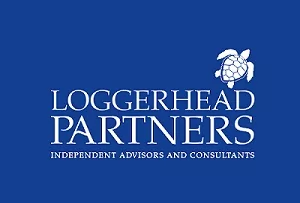Maintaining composure in turbulent times is not easy, especially when our financial security and economic stability are affected. Wealth preservation is an important issue to consider in times like this and establishing a wealth preservation strategy is a crucial part of any complete financial portfolio, and a key contributor to retaining peace of mind when uncertainty strikes.
Wealth preservation involves structuring your affairs in such a way that your wealth is protected both in terms of value and legal risk, as well as ensuring that your assets are passed on in the way you intend. Without a proper wealth plan in place, you could face a significant reduction in wealth eroded by taxes, estate or probate fees and other administration costs.
There are many different aspects to be taken into consideration when building a wealth preservation strategy. In this article we discuss some of these aspects and the tools that can be used to achieve your wealth preservation objectives. With the help of a professional advisor, you can find the right solution to your unique situation and navigate through uncertainty.
Estate and Succession Planning
Business, wealth and family interactions can be complex and sensitive affairs. The transition of family assets across generations needs to be considered not only from an emotional point of view, but the technical aspects should also be taken into account. Ensuring that your wealth is not eroded by unnecessary estate or inheritance taxes and fees, is vital to ensure that the benefits are passed on to the family intact and you maintain your standard of living until the end.
Having a correctly structured Will in place, a Life Insurance, setting up a Trust or a Foundation, are all tools to consider, depending on the complexity of your affairs. These structures can serve to ensure that your wealth is passed on according to your wishes, mitigate potential estate taxes and fees and also provide separation of the legal and beneficial ownership of an asset – thereby allowing you to maintain a sense of control that can help manage family decision making.
Example 1:
Client profile: You are a wealthy individual, owner of a large and successful business. You want this business to continue to operate for generations to come so that your family can benefit from the wealth you have created. The family heirs have differing opinions on how the business should be run and the fortune split. In addition, because you own the business in your personal capacity, it could attract estate taxes were you to pass away. You also want the business to be protected against any personal and legal liability.
Solution: Succession Planning via setting up a Trust or a Foundation
Benefits:
- The value of the business is no longer in your personal name,
thereby mitigating the effect of estate taxes, as well as
protecting it from other potential threats e.g. creditors, legal
action etc.
- Trusts and Foundations must appoint a board of trustees or a
council, who act in accordance with the Trust Deed or Foundation
Rules. You ensure your wealth gets passed on the next generation
according to your wishes.
- The heirs can then be appointed as beneficiaries, which means
they can continue to benefit from the business, but do not have
control over the business decisions
- This solution could be applied to many income generating assets
(i.e. real estate, shares, portfolios)
Note: There are some differences between trusts and foundations that can mean one structure may be preferable in certain circumstances than the other. The key is that both foundations and trusts are extremely useful structures in the context of wealth and succession planning.
Corporate Structuring
Whether for personal or business purposes, selecting the right corporate structure is a key consideration for any wealth preservation strategy, and should be considered in conjunction with estate and succession planning objectives.
Corporate Structuring involves more than the set-up of a company. The appropriate type of entity, the jurisdiction in which to base it, the products to be involved are all important decisions and a constant professional review of the structure is paramount.
The global nature of the world today has made it possible to consider setting up structures in many different locations, each providing its own benefits and opportunities in terms of asset protection, more favorable tax regimes and ease of doing business. Leveraging these opportunities can contribute significantly to a sound wealth preservation plan.
For commercial purposes, the right corporate structure results in optimized taxation, as well as overcoming barriers such as foreign capital restrictions and customs duties and procedures.
In terms of personal wealth preservation, corporate structuring can be implemented as a component of succession and estate planning, as well as optimizing tax efficiency and providing confidentiality and protection of assets such as shares, property and leisure assets.
Example 2:
Client profile: You are a wealthy individual, owner of a medium-size manufacturing business in an Asian country, with clients all over the world. Your main focus is to set up an efficient international, corporate structure and save money on taxes both at the corporate and personal level.
Solution: Corporate Structuring involving a Free Zone company in the UAE
Benefits:
- The UAE offers 0% corporate taxes and 0% personal income taxes
- The UAE has no restrictions on the repatriation of capital and profits
- With the right structuring, your Asian company ends up selling its products to your newly established UAE Free Zone company at a lower margin. Products will then be sold on to your global clientele at full price.
- Accrued profits will be flowing to the corporate bank account of the UAE Free Zone company. The company will be paying no corporate tax for its profits and you, as the owner, zero income tax.
Alternative Fiscal Residency
Fiscal residency is the country which you claim as your 'fiscal home' and therefore the country in which you pay taxes. The fiscal residency is what we often call our tax residency and should not be confused with citizenship, which is the country that issues your passport. Fiscal residency, from country to country, can have huge variations and financial impact, as each country's tax legislation differs greatly.
In today's interconnected world, where people move, live and work in different countries, an alternate fiscal residency is becoming an increasingly valuable wealth preservation tool. Not only can it mean paying far less in income and wealth-based taxes, but an alternate residency also aids in geographically diversifying your family's assets and provides a 'Plan B' if faced with economic or political instability in your primary place of residence or citizenship.
An alternative fiscal residency can also provide an important layer of confidentiality in terms of Common Reporting Standards (CRS). The CRS results in the Automatic Exchange of Information (AEOI). Countries party to the agreement are obliged to report their clients' bankable assets according to the account owner's place of residency. Important to note here is that the reporting takes place to your country of fiscal residence, not your country of citizenship.
Example 3:
Client profile: You are a wealthy individual, living in an EU country with high personal income tax rates that are eroding your wealth. You also own bankable assets in many jurisdictions, which in terms of CRS, are reported to your home country. Your objective is to reduce your personal tax burden, protect the value of your wealth as well as create confidentiality for your assets situated elsewhere.
Solution: Establish a residency in the UAE, either through setting up a Free Zone company or investing in real estate. Fully substantiate your residency to become a fiscal resident.
Benefits:
- As owner of a Free Zone company or real estate, you become a UAE Resident, free to enjoy the zero tax benefits of the UAE residency status. Your wealth is preserved as a result.
- With a fully substantiated residency (obtain a physical residence through rental or purchase, open a bank account, obtain local mobile number etc.) you can now claim the UAE as your country of tax residence, and CRS reporting will therefore be done to the UAE only. Your confidentiality is protected.
- Your alternate residency is in an economically stable and developed country with a real business economy and the capacity for economic substance. The UAE is a country which you can easily relocate to if the need arises.
Conclusion
In times of global uncertainty, it is vital to have a sound wealth preservation plan in place. However, there is no 'one size fits all' solution and the optimal strategy will look different for everyone. There are many aspects to consider and it is always advisable to seek the help of professional advisors with experience in international wealth planning, who can help you navigate these decisions.
The content of this article is intended to provide a general guide to the subject matter. Specialist advice should be sought about your specific circumstances.


